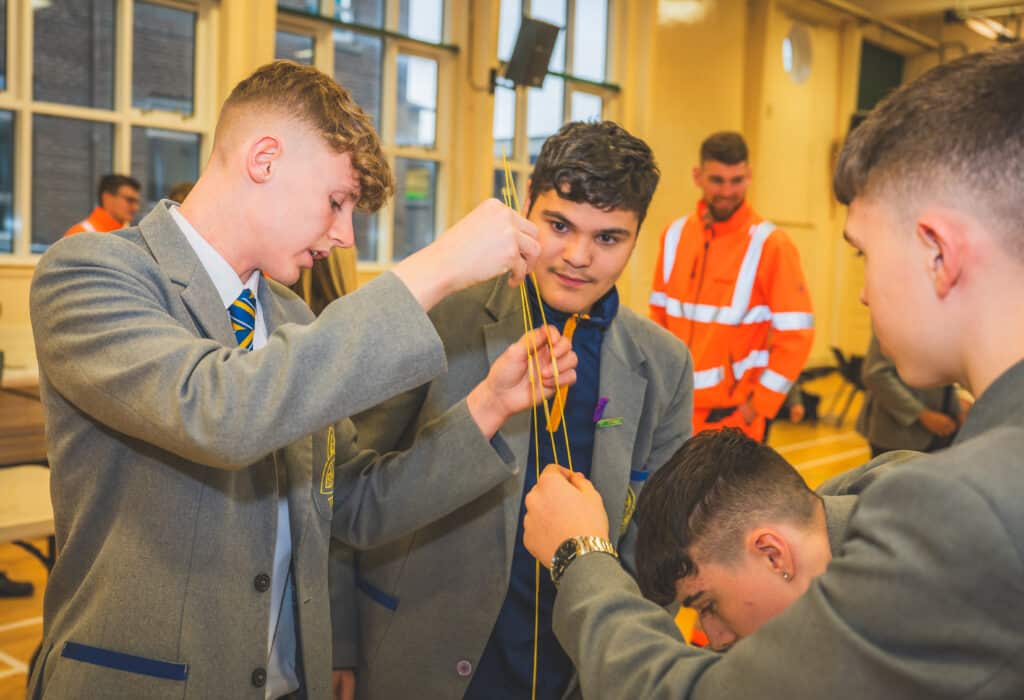Enhancing Careers Education: A Call to Embed Work Experience in Secondary Curriculum
The UK House of Lords Education for 11-16 Year Olds Committee has published its inquiry report, finding that the system is failing to prepare young people to take advantage of the full range of options post-formal education or to meet the future demands of the UK economy.
Our CEO, Nick Brook, gave evidence of the challenges we’ve seen working with young people, schools, and employers to ensure equal access to the workplace regardless of where a child goes to school or who their mum and dad know.

We know talent is spread equally across the country, but opportunity is not. Work experience is a crucial leveller that helps young people access opportunities. Breaking the cycle of inequity is why we exist, and we are pleased to see that reflected in the report.
Here are our key takeaways from the commission’s report.
Linking Learning to Employment
As our submission to the inquiry highlighted, 11-year-olds in school today will enter a workforce where digital, creative, and technical skills are likely to be in greater demand, alongside essential skills such as collaboration, creativity, and problem-solving. It is concerning that opportunities to develop these skills have been squeezed out of the 11–16 phase.
For students to be career-ready, the core curriculum needs to be broadened and linked to possible careers, with educators empowered and supported with resources to go beyond just teaching the curriculum. Oli de Botton, representing the CEC, explained how “the existing curriculum comes to life” by establishing meaningful connections between classroom learning and real-world employment opportunities. The Edge Foundation’s testimony also highlights the potential to drive increased engagement and attainment, particularly among the most disadvantaged students, who are most likely to leave the 11 – 16 phase without achieving a grade 4 or above in GCSE English and maths.
In our 2023 educator annual survey, 9 out of 10 educators said that their students were better informed about available jobs and careers after attending work experience placement, showing how sustained engagement with employers can benefit schools in bridging the gap between theory and practice and providing students with insights into various industries and career pathways.
Limited Opportunities for Meaningful Engagement
The commission heard from a broad range of people in the education sector who spoke to the challenge of limited opportunities for young people. Our research shows that attending work experience reduces the chance of becoming NEET from 11 to 7%. Yet, there has been a declining trend in access to work experience over the last decade, and privately educated young people are twice as likely to have done multiple placements as their state-educated peers.

An employer described the system as ‘… a bit of a postcode lottery. Some local schools still hold space for work experience for all Year 10 students and take up places with us, whereas others don’t’.
The Role of Work Experience in Career Development
Work experience should not merely be a checkbox on the educational journey but a transformative experience that fosters personal and professional growth.
As our CEO, Nick Brook, explained, schools need to help pupils “draw the value from the experience they have had, to identify the learning from it and to capitalise on it” during his appearance before the committee. By providing high-quality work placements to all students, we can start to transition from an education system focused on a limited set of traditionally academic subjects to a more inclusive and balanced educational system that sets up all students for success by providing up-to-date information from employers on the academic and vocational routes into their industry.
We appreciate the House of Lords Committee’s recognition of the need for greater emphasis on CEIAG in the 11–16 phase and that this can be enhanced through meaningful engagement between schools and employers.
As we look towards the future, we strongly recommend that the Department for Education (DfE) incorporate work experience as a central component of the updated careers strategy, set to be released by the end of 2024.
We call on educators, employers, and policymakers to work collectively to ensure that every student has the opportunity to make informed decisions about their future and embark on a path that aligns with their passions and aspirations.
Written by Funbi Akande, Policy Officer, Speakers for Schools